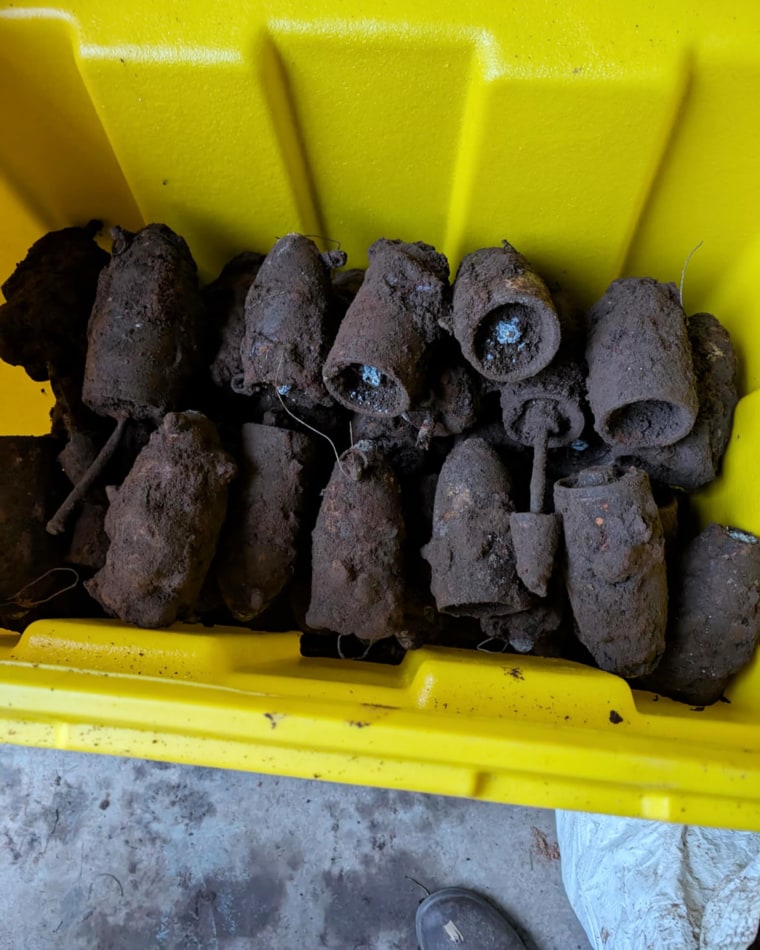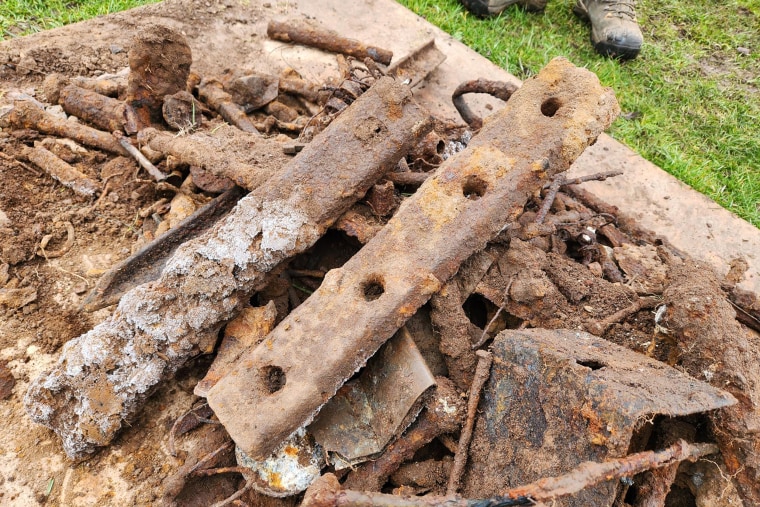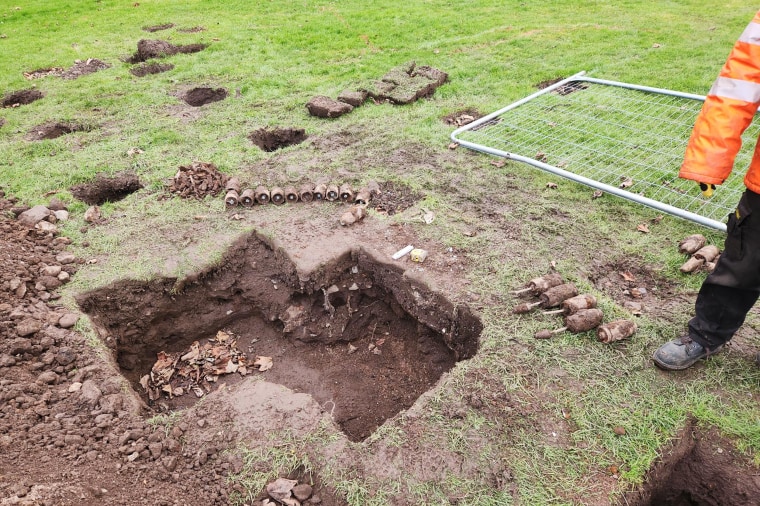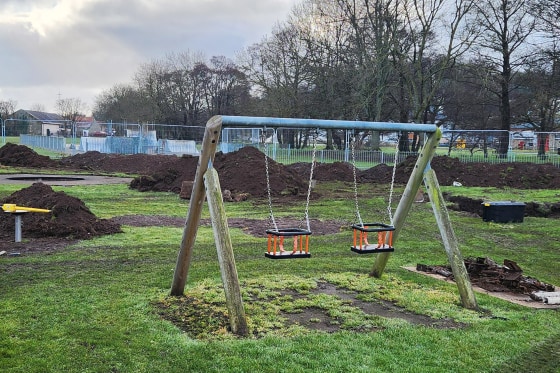It could have been an explosive discovery. But luckily, more than 170 World War II bombs lying underneath a children's playground in northeastern England did not go off, and workers were able to recover them.
Construction workers found the first bomb when they began work on the Scotts Park playground in the small town of Wooler last month, Kerren Rodgers, a spokesperson for the local Parish Council, told NBC News on Tuesday. Since then, she said, 176 bombs had been recovered.
Describing the find as “unexpected,” the council said in a news release Friday that bomb disposal experts Brimstone Site Investigations had been called in to search the site for more explosives.

On their first day, they uncovered 65 practice bombs, each weighing 10 pounds, in an area just over 10 square feet, the release said.
“Whilst this ordnance is described as practice bombs, they do still carry a charge,” the release said. By the end of the second day, a further 90 practice bombs had been recovered, it added.
Given the numbers involved, the bombs needed “to be recovered by professionals to satisfy all concerned that the playpark area is once again safe for contractors and ultimately users of the equipment,” the release said.

Rodgers, the council spokesperson, said, “Our main concern is to make the site completely safe and to restart the installation of the fully inclusive playground as soon as practical.”
A spokesperson for Brimstone Site Investigations said that its team of engineers was working on-site to safely remove and dispose of all the bombs but that it was unable to provide further comment for safety and operational reasons until the job was completed. The spokesperson did not say when that might be.
In a separate interview with the BBC, Councillor Mark Mather said the area may have been used as a Home Guard training ground where army officers went from across the country.
“After the war, it looked like they just buried all the ordnance in one of the pits,” he said.
It is far from the first time that unexploded World War II ordnance has been discovered in Britain.

In what the Defense Ministry called “one of the largest U.K. peacetime evacuation operations,” thousands of people were told to leave their homes in the southwestern city of Plymouth after an unexploded bomb was discovered in a garden last February.
Authorities transported the device, which weighed just over 1,000 pounds, through the city before they detonated it at sea.
Farther north, in Scotland's capital, Edinburgh, three unexploded bombs dropped during a German raid in 1940 remain buried under the city's streets, according to the police archives.
So far, only a third of the children's park in Wooler has been cleared as officials continue excavations to ensure no more ordnance is hidden underneath.
“It’s quite something to think the children have been playing on bombs, and it’s been a really challenging situation," Mather said.
